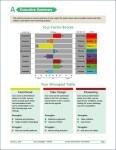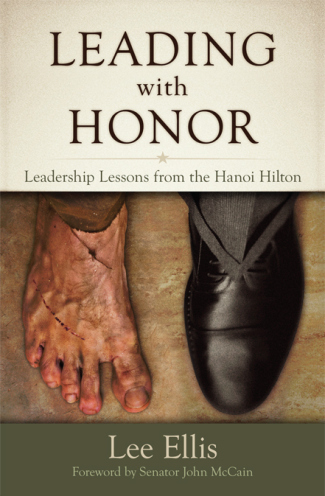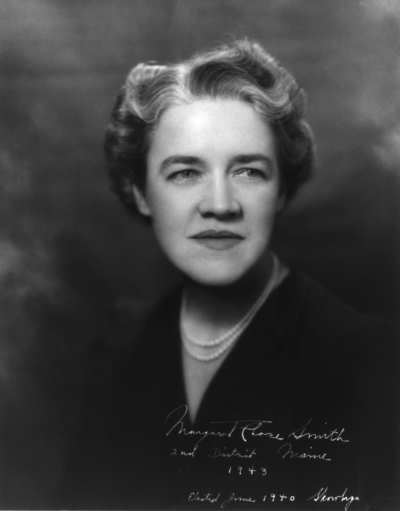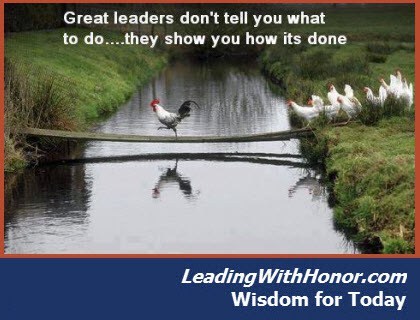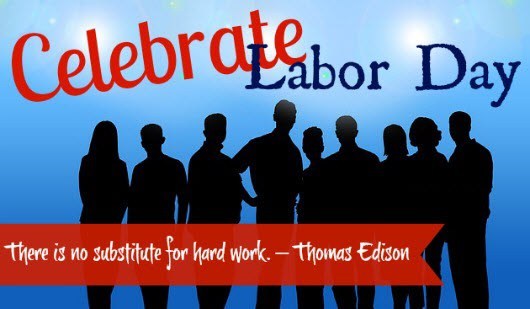Lee Ellis's Blog, page 296
September 16, 2015
The Art and Science of Intuition in Leadership
 By Lee Ellis
By Lee Ellis
Several years ago my strategic partner and good friend Hugh Massie, Founder and CEO of DNA Behavior® International, mentioned that he was learning to trust his gut instincts more. That caught my attention since he is a CPA by training and a very results oriented, rational person.
Then as I read Malcolm Gladwell’s book, Blink, I learned about this idea of the “second mind,” as he called it. Gladwell raised the visibility of the power of intuition, but I suspect that it was only for a short time for most people.
Then at a past National Speakers Association Convention, I met a leadership consultant who was building her speaking platform around the idea that leaders (who have mostly been trained like engineers to trust rationality and disregard feelings) needed to learn to use their intuition more to make better decisions.
Just recently I read another impressive book, THE WAY OF THE SEAL: Think Like an Elite Warrior to Lead and Succeed and was interested to see that author Mark Divine, a former CPA and Navy SEAL, made instinct (awareness of gut feelings) a major theme of the book. His proposition is that leaders should train like Navy SEALS to intentionally use both rational (conscious mind) and instinctive (drawing from the unconscious mind) inputs to make the best decisions.
Albert Einstein didn’t read Blink, and he certainly wasn’t a Navy SEAL, but evidently he discovered this related theory early on, saying,
“The intuitive mind is a sacred gift and the rational mind is a faithful servant. We have created a society that honors the servant and has forgotten the gift.”
I’m seeing a pattern from these different points on the topic of intuition, so let’s explore it a bit deeper.
So what is the gift?
Intuition is about listening to your subconscious mind (gut instincts) to pull forward information and feelings that you’ve accumulated over a lifetime. Warriors have to rely on instinct, using every possible sense from outside and every stirring from inside to stay alive. Having a good visual memory for shapes and landforms is crucial for a military pilot. Being able to store and recall patterns of logic and information is important for an entrepreneur or business person.
Emotional memory is probably the strongest memory that we have, and it’s also the one most quickly accessed.
Emotional memory is the one we feel in our gut, and it helps us access the gigabytes of memory stored in our subconscious faster than any processor yet made. So, intuition is this stream of awareness that flows from our subconscious to our conscious, but it requires our tuning in to hear the signal.
Can It Be Learned?
The short answer is yes, but the issue is whether you will develop your awareness and then allow intuition to move from your gut to your mind. It’s not a problem when data is tagged with emotions; it’s ready for quick retrieval and usually easy to access. At other times, it’s as simple as stopping to ask yourself, “What is my gut telling me about this—what is my intuition?”
Sometimes data needed for intuition needs help in getting to our awareness, and this situation is where we have to be more intentional about accessing it. It usually means taking time to shut down our rational thinking and reflect usually in a quiet setting away from distractions. Sounds a lot like meditation and prayer, doesn’t it? I believe it’s very similar and can be the same. Reflecting, waiting, and listening with our feelings for insight is a practice used by wise people throughout the history of civilization, and in our increasingly fast-paced society it’s a lost art. If we ignore or fail to cultivate the intuitive half of our decision-making abilities, we become less than our best as leaders and merely rely on the facts at hand.
Awareness of yourself and others’ natural behavior is also a strong element to developing intuition. Assessments like Leadership Behavior DNA summarize these behaviors, and your mind can access these results after you’ve reviewed and used them.
My Experience
I think that I’m a very logical and rational person, but I’ve also been blessed with a gift for patterns and a good memory. In recent years I’ve learned to value what these gifts reveal to me and trust my intuition more. I do have to be careful about not jumping to conclusions with too little rational information, but overall I’m feeling more confident in my decision-making and greater commitment to execution.
What about you? What has been your experience? How often do you integrate your intuition in your decision-making? Why do you believe that some leaders ignore or don’t develop their intuitive abilities when it would produce better results and greater success? Please share your thoughts and comments.
LE
How can you develop the science part of your intuitive nature? Learn more about the report and training services available from Leadership Behavior DNA.


September 15, 2015
Fill-in-the-Blank – “As a parent or leader, ________________ takes most of my time and attention each day.”
Fill-in-the-Blank – “As a parent or leader, ________________ takes most of my time and attention each day.”
Please share your answers in this forum – thank you


September 14, 2015
Need a Nice Presentation Piece for Your Leader or Team? See Inside
Looking for a nice presentation gift for your leaders or team? Leading with Honor is still published in hardcover keepsake format. Filled with wisdom and lessons that all leaders can use, it’s a great way to inspire someone and say thank you!
Bulk savings available in our online store – Click to Learn More


September 13, 2015
On This Day in Leadership History, September 13, 2015
On this day in leadership history in 1948, Margaret Chase Smith was elected to the U.S. Senate and became the first woman to serve in both houses of the U.S. Congress. If you’re in your area of strength as a leader, why stop with just one achievement? Continue to expand your influence and see how far you go. The world needs honorable leaders like you!
Margaret Chase Smith- Wikipedia


September 11, 2015
Leading with Honor Wisdom for Today, September 11, 2015
September 10, 2015
Use Coaching Skills to Run an Effective Meeting
Do you regularly struggle to get traction and decisions in meetings, whether they’re personal or professional settings? This article from Arudia gives a simple (but still not always easy) process for making meetings more valuable.
Read the Article, and see if you agree –

© Royalty-Free/Corbis


September 8, 2015
Effective Leadership Hinges on Learning to Listen, Engage – See How it Works
Doubts and fears in leadership are normal. You can’t avoid them, but you can manage them. You can choose to override your feelings and do the right thing. Lee shares his wisdom in this new Smart Business Magazine article.
Please Read and share your comments in this forum –


Listen to Lee’s Personal Narration of His Vietnam POW Experience
Want to hear Lee Ellis narrate his own stories from his Vietnam POW experience? Get a copy of the ‘Leading with Honor’ Audio Book. Below is an audio sample from Chapter 1.
Buy your copy at your favorite book retailer such as Amazon or Barnes and Noble. Already have a copy? Please share what you liked about it!


September 7, 2015
A Special Message on Celebrating Labor Day
September 6, 2015
On This Day in Leadership History, September 6, 2015
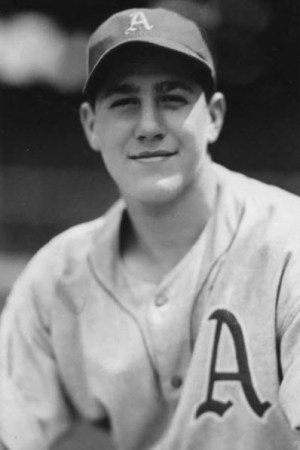 On this day in leadership history in 1943, the youngest player to appear in an American League baseball game was pitcher Carl Scheib of the Philadelphia Athletics. Scheib was 16 years, eight months and five days old.
On this day in leadership history in 1943, the youngest player to appear in an American League baseball game was pitcher Carl Scheib of the Philadelphia Athletics. Scheib was 16 years, eight months and five days old.
Leaders who find, comprehend, and embrace their core talent and strengths gain momentum much quicker than those who try to be someone that they’re not designed to be. Know yourself as a person and leader!
Carl Scheib – Wikipedia



